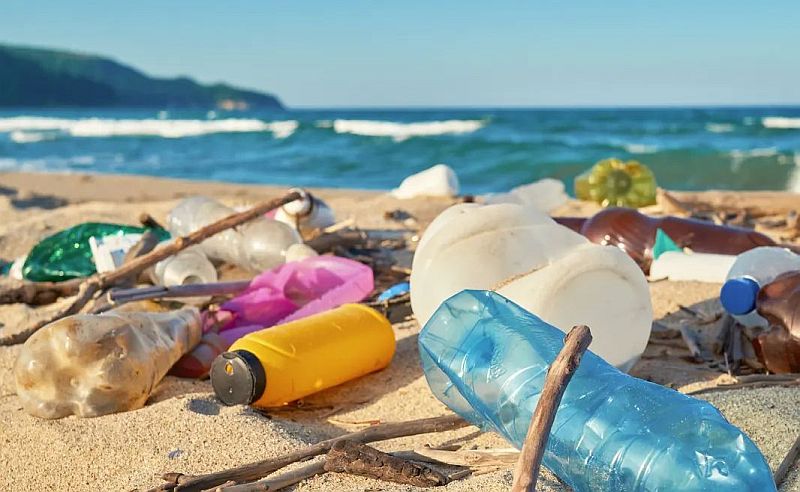
Mexico has taken a major step toward cleaner, healthier coastlines with the launch of a national strategy to eliminate all plastic waste from the country’s beaches by 2030. As part of this initiative, the Ministry of Environment and Natural Resources (Semarnat) signed a collaboration agreement with Ecoce, a leading civil association focused on recycling and waste management.
The agreement, signed by Marina Robles García, Undersecretary of Biodiversity and Environmental Restoration, and Jorge Terrazas Ornelas, Director General of Ecoce, falls under the National Strategy for the Cleanup and Conservation of Mexico’s Beaches and Coasts 2025–2030. This comprehensive plan, backed by President Claudia Sheinbaum’s administration, promotes coordinated action among federal agencies, local governments, civil society, and businesses.
Under the agreement, Ecoce will install free collection, transfer, and registration stations on beaches across the country. These stations will help sort waste into organic, recyclable inorganic, and non-recyclable inorganic materials. The partnership also provides cleanup participants with reusable sorting bags to help separate materials during collection efforts.
Jorge Terrazas emphasized Ecoce’s commitment to ensuring that recyclable waste, such as PET plastic, is processed responsibly. “Our role is to make sure the waste collected actually reaches recycling plants,” he said. “This agreement reflects our belief that environmental challenges require teamwork—from governments to everyday citizens.”
As part of its responsibilities, Ecoce will also handle the transportation and delivery of recyclable waste to the nearest collection or recycling centers. Meanwhile, Semarnat will work with local authorities to manage any materials that cannot be processed by Ecoce.
The initiative kicked off on June 5 with large-scale cleanups in Puerto Progreso, Yucatán; Acapulco, Guerrero; San Felipe, Baja California; Puerto Vallarta, Jalisco; and Puerto Morelos, Quintana Roo. Over the next six years, all 17 of Mexico’s coastal states will take part.
During the signing ceremony, Undersecretary Robles highlighted that most waste on beaches originates from inland sources, pointing to the importance of public participation. “This is not just a government responsibility,” she said. “We all must work together to reduce pollution.”
Robles also reflected on her early collaboration with Dr. Claudia Sheinbaum two decades ago to develop Mexico’s first waste management laws, which laid the groundwork for Ecoce’s creation.
Plastic waste makes up as much as 90% of the debris found on beaches. Globally, around 13 million tons of plastic enter the ocean each year, posing a growing threat to marine ecosystems and human health. By focusing on prevention, recycling, and community involvement, Mexico’s new strategy offers hope for lasting environmental impact.

We need your support to keep Banderas News thriving. As more and more news outlets resort to paywalls, we remain steadfast in our mission to provide free, quality journalism to Puerto Vallarta residents and visitors. Your contribution helps us maintain this commitment and continue serving our community.






